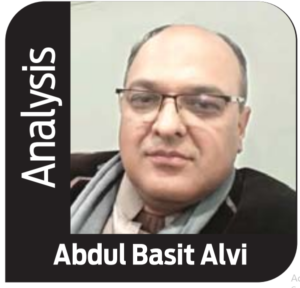
 Whole world have witnessed the terrorist attacks on military and civilian installation in Pakistan following the arrest of Imran Khan on charges of corruption. Terrorists and Anti-State elements also attacked the Civil and Military Installation including Jinnah House (Lahore Corps Commander House), Mianwali airbase, the ISI building in Faisalabad and the Army Headquarters (GHQ) in Rawalpindi.
Whole world have witnessed the terrorist attacks on military and civilian installation in Pakistan following the arrest of Imran Khan on charges of corruption. Terrorists and Anti-State elements also attacked the Civil and Military Installation including Jinnah House (Lahore Corps Commander House), Mianwali airbase, the ISI building in Faisalabad and the Army Headquarters (GHQ) in Rawalpindi.
Several terrorists were arrested and it was decided that they will be dealt by Military Act and Military courts. A civilian court is typically used to try individuals who have been accused of a crime that is not related to the military. These courts are run by civilian judges and use civilian laws. For example, if you are accused of shoplifting, you would go through the civilian court system as there is no reason for the military to get involved. On the other hand, a military court is a judicial body that is part of the military justice system. These courts are used to try members of the military who are accused of breaking military laws. For example, if you are a member of the military and you are caught stealing from a fellow soldier, you would likely be tried in a military court. In addition to trying members of the military, military courts can also try civilians who are accused of serious offenses, such as terrorism or espionage. These civilians are tried in military courts because their crimes are a threat to national security. It is a normal practice everywhere and no one allows anyone to attack on its military and civilian installations.
Some voices against these arrests and actions were seen from abroad in last days. More than a dozen lawmakers in Canada written to prime minister Justin Trudeau, underscoring the simmering situation in Pakistan after the arrest of Imran Khan. Claiming to represent “thousands of concerned Canadians of Pakistani heritage”, the letter undersigned by 16 members of parliament asked Mr Trudeau to address the political turmoil that has led to widespread arrests and human rights violations(according to them) in Pakistan. United Nations human rights chief Volker Türk condemned Pakistan’s plans to prosecute civilians involved in May 9 protests under the Army Act. The UN high commissioner for human rights said in a statement, “Pakistan’s plans to revive the use of military courts to try civilians is disturbing.” Zalmay Khalilzad, the former US special envoy on Afghanistan, also expressed concerns over reports that PML-N-led coalition government is mulling tough actions against Imran Khan-led Pakistan Tehreek-e-Insaf (PTI). In a series of tweets, the former US envoy warned that any move to disqualify former PM Imran from contesting election or outlaw his party will further aggravate the “triple crises” that the country is facing.
Unfortunately, the world has dual standard. When they have to deal with such cases they act upon their laws but when others do that, they immediately term it as violation of human rights. Here are few examples which clearly show that how they themselves dealt with the similar elements:
The 2011 England riots, more widely known as the London riots, were a series of riots between 6 and 11 August 2011. Thousands of people rioted in cities and towns across England, which saw looting and arson, as well as mass deployment of police and the deaths of five people. The protests started in Tottenham Hale, London, following the death of Mark Duggan, a local man who was shot dead by police on 4 August. Several violent clashes with police followed Duggan’s death, along with the destruction of police vehicles, a double-decker bus and many homes and businesses; which rapidly gained the attention of the media. Overnight, looting took place in Tottenham Hale retail park and in nearby Wood Green. The following days saw similar scenes in other parts of London, with the worst rioting taking place in Hackney, Brixton, Walthamstow, Wandsworth, Peckham, Enfield, Battersea, Croydon, Ealing, Barking, Woolwich, Lewisham and East Ham. From 8 to 11 August, other towns and cities in England (including Birmingham, Bristol, Coventry, Derby, Leicester, Liverpool, Manchester and Nottingham) faced what was described by the media as “copycat violence”, with social media playing a role. By 10 August, more than three thousand arrests had been made across England, with at least 1,984 people issued with criminal charges for various offences related to the riots. Initially, courts sat for extended hours. A total of 3,443 crimes across London were linked to the disorder. Along with the five deaths, at least 16 others were injured as a direct result of related violent acts. An estimated £200 million worth of property damage was incurred, and local economic activity – which in many cases was already struggling due to the 2008 recession – was significantly compromised. Of these, almost 1,000 offenders have been jailed for an average of more than a year. A total of 945 of the 1,483 found guilty and sentenced for their role in the riots were jailed immediately, with an average sentence of 14.2 months. The largest number of cases was in London where there had been 1,896 first hearings, followed by the West Midlands, 301 hearings and Greater Manchester, 240. At Nottingham magistrates court an 11-year-old girl from Nottinghamshire pleaded guilty to criminal damage and attempted criminal damage during Tuesday night’s riots. The girl admitted smashing the window of a clothes shop in the city centre and throwing stones. She received a nine-month referral order, which involves a youth offenders panel drawn from the community coming up with a non-jail penalty. The judge, Maurice Cooper, said the sentence of nine months was “longer than normally given for breaking windows” but reflected the seriousness of other events that occurred in the city that night.
Then in United States, Oath Keepers extremist group founder Stewart Rhodes was sentenced to 18 years in prison for orchestrating a weekslong plot that culminated in his followers attacking the US Capitol in a bid to keep President Joe Biden out of the White House after winning the 2020 election. Rhodes, 58, was the first person convicted of seditious conspiracy in the Jan 6, 2021, attack to receive his punishment, and his sentence was the longest handed down so far in the hundreds of Capitol riot cases. Then in another case, Capitol rioter who put feet on Nancy Pelosi’s desk was sentenced to over 4 years.
I read somewhere that in USA, Whoever knowingly assaults or batters a United States serviceman or an immediate family member of a United States serviceman, or who knowingly destroys or injures the property of such serviceman or immediate family member, on account of the military service of that serviceman or status of that individual as a United States serviceman, or who attempts or conspires to do so, shall: (1) in the case of a simple assault, or destruction or injury to property in which the damage or attempted damage to such property is not more than $500, be fined under this title in an amount not less than $500 nor more than $10,000 and imprisoned not more than 2 years;(2) in the case of destruction or injury to property in which the damage or attempted damage to such property is more than $500, be fined under this title in an amount not less than $1000 nor more than $100,000 and imprisoned not more than 5 years; and(3) in the case of a battery, or an assault resulting in bodily injury, be fined under this title in an amount not less than $2500 and imprisoned not less than 6 months nor more than 10 years.
Then come to another aspect. Recently, I have seen a video of Moeed Pirzada who is seeking help from US. These are people who on the behest of Imran mislead thousands of youth on anti US narrative and then linked Pakistan Army with US and filled the hearts and minds of masses against Pakistan Army. Now Moeed is begging Americans and ready to offer EVERYTHING. He is admitting that he is already working with US FBI. People like Moeed Pirzada, Adil Raja, Haider Mehdi Wajahat etc are playing role of anti-state elements and continuously spreading propaganda against Pakistan and Pak Army and polluting the minds of younger generation. The nation is well aware of the mentality of such Anti- State elements who are doing all this just for their personal interests. How PTI, Imran Khan and their few followers can defend their dirty action on May 9? How US and Europe can still trust on those elements who accused them to remove their government and now again seeking help from them? It was right to punish the culprits of 9/11 but why it’s wrong to deal with the terrorists of May 9 according to laws and regulations of Pakistan?
Readers, the details mentioned above clearly proves that no country allows the terrorists and anti-state elements to attack on their military and civil installations. So Pakistan also has full right to treat these elements according to country’s laws and regulations. Whole nation stands with the decision of dealing with these riots strictly.
Writer is senior defense analyst





